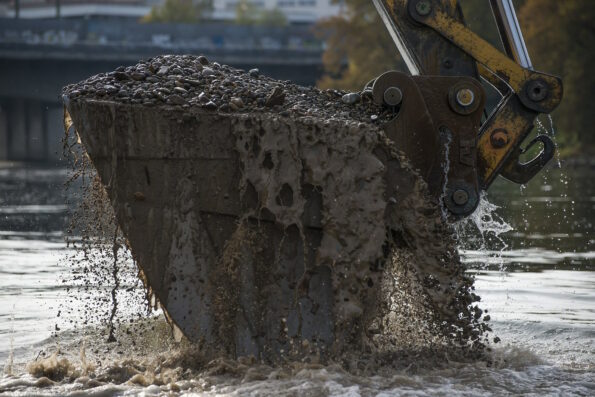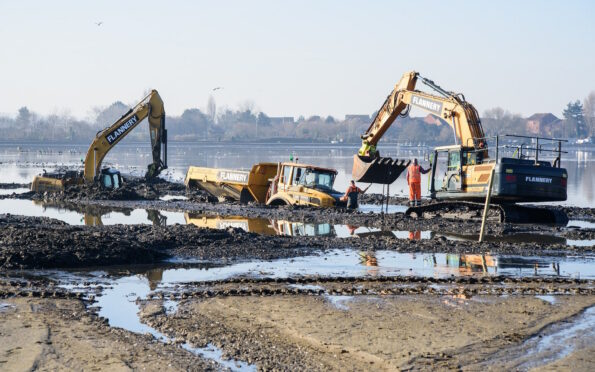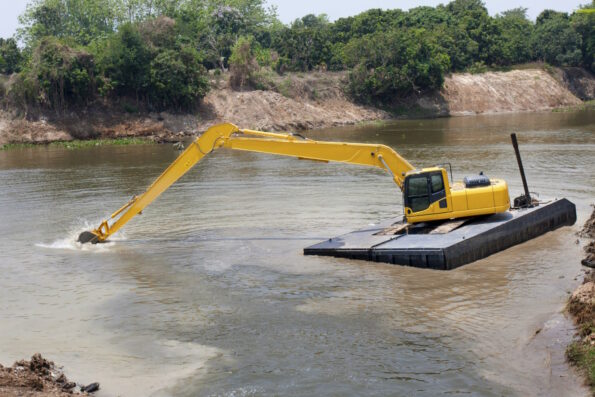Excavators can be used in water for a variety of purposes such as:
- dredging
- construction of docks and bridges
- cleaning of water bodies
- flood control
- vehicle rescue
- mining
- preparing the sea or riverbed
- laying fibre optic cable
- retrieving shipwrecks and cargo.
However, the ability of an excavator to operate in water depends on the depth and conditions of the water, as well as the specific design and capabilities of the excavator.

Fast-flowing water can move even very heavy vehicles if it’s deep enough. While the excavator won’t float like a car can, unstable surfaces under the water can still permit the excavator to move given the right amount of pressure. The operator must be confident of the surface under the excavator to reduce the risk of tipping or sinking in, otherwise a rescue may be needed.

Excavators that are designed for use in water typically have features that allow them to operate more effectively in wet environments. For example, they may have extended booms and longer reach capabilities to reach deeper areas (especially those used on a pontoon), as well as additional waterproofing and sealing measures to protect the sensitive electronic and hydraulic components from water damage.

The cab might be raised in relation to a regular excavator, to keep the engine and cab out of the water.

Operating an excavator in water can be hazardous and requires specialised excavator training and equipment. In addition, environmental regulations may restrict or require permits for certain types of water-related excavation activities.
It’s important to note that there are excavators that can operate completely under water, but the vast majority of excavators will not do that as they have a diesel engine that requires air to function. Once the air intake is underwater, the engine will no longer function.
In excavators used in water, the hydraulic fluid is usually replaced with a non-toxic biodegradable oil. Lithium grease is usually used as it will adhere in water.
If using an excavator in salt water, it must be cleaned thoroughly to delay corrosion – serious corrosion can happen in as little as a year. Special lubricants and seals may be required, and lubrication usually needs to be reapplied at least once and sometimes a few per day; auto-greasing systems are advantageous.

Leave a Reply
You must be logged in to post a comment.